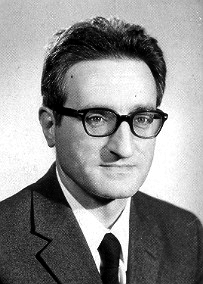
Enrico Berlinguer was an Italian politician. Considered the most popular leader of the Italian Communist Party (PCI), he led the PCI as the national secretary from 1972 until his death during a tense period in Italy's history, which was marked by the Years of Lead and social conflicts, such as the Hot Autumn of 1969–1970. Berlinguer was born into a middle-class family; his father was a socialist who became a deputy and later senator. After leading the party's youth wing in his hometown, he led the PCI's youth wing, the Italian Communist Youth Federation (FGCI), at the national level from 1949 to 1956. In 1968, he was elected to the country's Chamber of Deputies, and he became the leader of the PCI in 1972; he remained a deputy until his death in 1984. Under his leadership, the number of votes for the PCI peaked. The PCI's results in 1976 remain the highest for any Italian left-wing or centre-left party both in terms of votes and vote share, and the party's results in 1984, just after his death, remain the best result for an Italian left-wing party in European elections, and were toppled, in terms of vote share in a lower-turnout election, in the 2014 European Parliament election in Italy.

The Italian Communist Party was a communist and democratic socialist political party in Italy. It was founded in Livorno as the Communist Party of Italy on 21 January 1921, when it seceded from the Italian Socialist Party (PSI), under the leadership of Amadeo Bordiga, Antonio Gramsci, and Nicola Bombacci. Outlawed during the Italian fascist regime, the party continued to operate underground and played a major role in the Italian resistance movement. The party's peaceful and national road to socialism, or the "Italian Road to Socialism", the realisation of the communist project through democracy, repudiating the use of violence and applying the Constitution of Italy in all its parts, a strategy inaugurated under Palmiro Togliatti but that some date back to Gramsci, would become the leitmotif of the party's history.

Palmiro Michele Nicola Togliatti was an Italian politician and leader of Italy's Communist party for nearly forty years, from 1927 until his death. Born into a middle-class family, Togliatti received an education in law at the University of Turin, later served as an officer and was wounded in World War I, and became a tutor. Described as "severe in approach but extremely popular among the Communist base" and "a hero of his time, capable of courageous personal feats", his supporters gave him the nickname il Migliore. In 1930, Togliatti renounced Italian citizenship, and he became a citizen of the Soviet Union. Upon his death, Togliatti had a Soviet city named after him. Considered one of the founding fathers of the Italian Republic, he led Italy's Communist party from a few thousand members in 1943 to two million members in 1946.

Luigi Longo, also known as Gallo, was an Italian communist politician and general secretary of the Italian Communist Party from 1964 to 1972. He was also the first foreigner to be awarded an Order of Lenin.
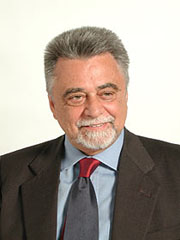
Achille Leone Occhetto is an Italian political figure. He served as the last secretary-general of the Italian Communist Party (PCI) between 1988 and 1991, and was the first leader of the Democratic Party of the Left (PDS), the parliamentary socialist successor of the PCI, from 1991 to 1994.
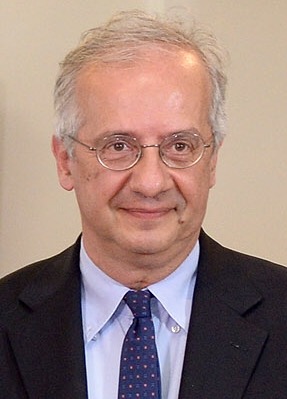
Walter Veltroni is an Italian writer, film director, journalist, and politician. He served as the first leader of the Democratic Party within the Italian centre-left opposition until his resignation on 17 February 2009. He also served as mayor of Rome from June 2001 to February 2008.

Fausto Bertinotti is an Italian politician who led the Communist Refoundation Party from 1994 to 2006. On 29 April 2006, after the centre-left coalition's victory in the Italian general election, he was elected President of the Chamber of Deputies, a position he held until 2008.
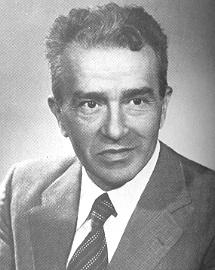
Pietro Ingrao was an Italian politician and journalist who participated in the Italian resistance movement. For many years, he was a senior figure in the Italian Communist Party (PCI).
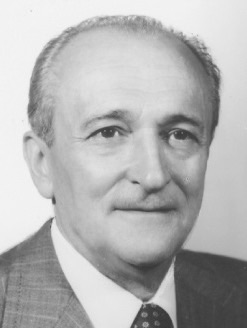
Alessandro Natta was an Italian politician and secretary of the Italian Communist Party (PCI) from 1984 to 1988. An illuminist, Jacobin, and communist, as he used to describe himself, Natta represented the political and cultural prototype of a PCI militant and party member for over fifty years of the Italian democratic-republican history. After joining the PCI in 1945, he was deputy from 1948 to 1992, a member of the PCI's central committee starting in 1956, was part of the direction from 1963 and of the secretariat, first from 1962 to 1970 and then from 1979 to 1983, and leader of the PCI parliamentary group from 1972 to 1979; he was also the director of Rinascita from 1970 to 1972. After 1991, he did not join the PCI's successor parties.

Armando Cossutta was an Italian communist politician. After World War II, Cossutta became one of the leading members of the Italian Communist Party (PCI), representing the most pro-Soviet Union tendency; his belief in that country as the leading Communist state led him to criticize Enrico Berlinguer. Later in life, although he did not regret the choice he made, Cossutta considered that he was mistaken in opposing Berlinguer.

The Democratic Party of the Left was a democratic-socialist and social-democratic political party in Italy. Founded in February 1991 as the post-communist evolution of the Italian Communist Party, the party was the largest in the Alliance of Progressives and The Olive Tree coalitions. In February 1998, the party merged with minor parties to form Democrats of the Left. At its peak in 1991, the party had a membership of 989,708; by 1998, it was reduced to 613,412.
Migliorismo was a tendency within the Italian Communist Party (PCI). Its founder and first leader was Giorgio Amendola, and it counted among its members the likes of Gerardo Chiaromonte, Emanuele Macaluso, and Giorgio Napolitano. Napolitano went on to became the longest-serving and longest-lived president in the history of the Italian Republic, as well as the first president of Italy to have been a former PCI member. Due to the relatively moderate and reformist views of its adherents, it was referred to as the right-wing of the PCI. Apart from Amendola, Chiaromonte, Macaluso, and Napolitano, other notable miglioristi included Nilde Iotti, Giancarlo Pajetta, and Luciano Lama. After the death of Amendola in 1980, Napolitano became its main leader.
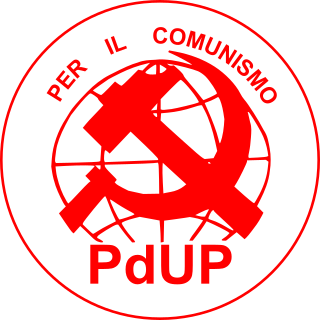
The Proletarian Unity Party was a far-left political party in Italy.
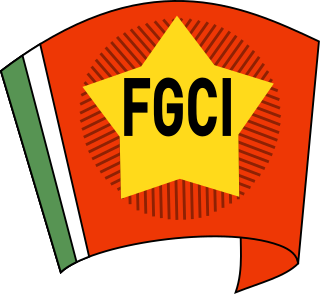
The Italian Communist Youth Federation was the youth wing of the Italian Communist Party, and the direct heir of the Federazione Giovanile Comunista d'Italia of the PCd'I.

Massimo D'Alema is an Italian politician and journalist who was the 53rd prime minister of Italy from 1998 to 2000. He was Deputy Prime Minister of Italy and Italian Minister of Foreign Affairs from 2006 to 2008. D'Alema also served for a time as national secretary of the Democratic Party of the Left (PDS). Earlier in his career, D'Alema was a member of the Italian Communist Party (PCI) and was the first former Communist party member to become prime minister of a NATO country and the only former PCI prime minister of Italy. Due to his first name and for his dominant position in the left-wing coalitions during the Second Republic, he is referred to as Leader Maximo. He is also the author of several books.

The Communist Party is an anti-revisionist Marxist–Leninist communist party in Italy, founded in 2009. It defines itself as "the revolutionary political vanguard organization of the working class in Italy". Since 2013, it is part of the Initiative of Communist and Workers' Parties (INITIATIVE), of which it is one of the founder parties and still the representative for Italy.
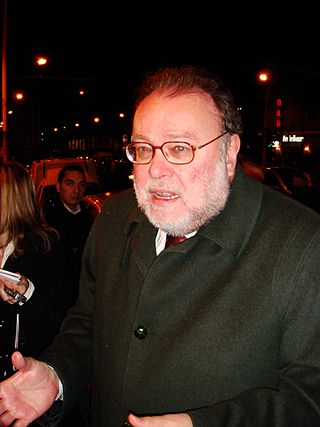
Claudio Petruccioli is an Italian politician and journalist. A member of the Italian Communist Party until 1991, he has been president of Italian state-owned network, RAI, from 2005 to 2009.

The Communist Refoundation Party is a communist political party in Italy that emerged from a split of the Italian Communist Party (PCI) in 1991. The party's secretary is Maurizio Acerbo, who replaced Paolo Ferrero in 2017. Armando Cossutta was the party's founder, while Fausto Bertinotti its longest-serving leader (1994–2008). The latter transformed the PRC from a traditional communist party into a collection of radical social movements.
Walter Piludu was an Italian politician for the Italian Communist Party (PCI).

Emanuele Macaluso was an Italian trade unionist, politician, and journalist.
